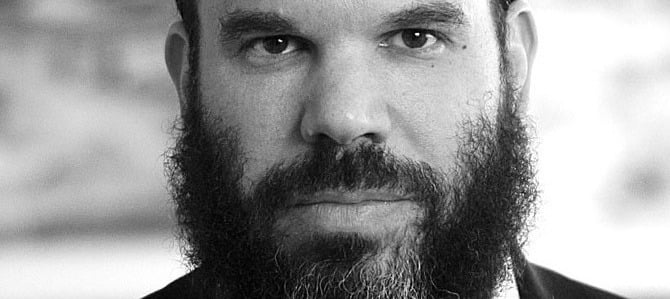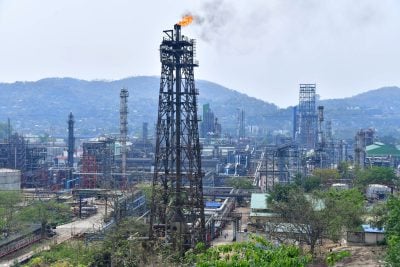President Joe Biden’s administration will reverse a temporary sanctions reprieve on billionaire Israeli mining tycoon Dan Gertler over allegedly corrupt mining and oil deals in the Democratic Republic of Congo.
The Treasury and the State Department will revoke the sanctions waiver issued in the final days of the Trump administration, the departments said in a joint statement on Monday.
The temporary reprieve issued five days before Trump left office in January 2021 was “inconsistent with America’s strong foreign policy interests… including U.S efforts to counter corruption and promote stability in the Democratic Republic of Congo,” the statement said.
“As the original designation of Mr Gertler under the Global Magnitsky sanctions program in 2017 and subsequent designations in 2018 made clear, Mr. Gertler engaged in extensive public corruption,” they said.
Dan Gertler was slapped with US sanctions in 2017 for allegedly profiting from “opaque and corrupt oil deals” made possible by his intimate friendship with former DRC strongman President Joseph Kabila.
The US government stated that “between 2010 and 2012 alone, the DRC reportedly lost over $1.36 billion in revenues from the underpricing of mining assets that were sold to offshore companies linked to Gertler”. Gertler denies all wrongdoing.
However, in January 2021, President Donald Trump eased the sanctions. Under a new licence, US institutions were allowed to lift asset freezes and transact with Gertler and his sanctioned entities for at least a year. No reason was given for the decision, which bypassed a normally rigorous review process.
DR Congo at a crossroads
Meanwhile, hopes are rising that Congo’s mining sector, marred by allegations of decades of corruption is turning the corner. In recent weeks, President Felix Tshisekedi has neutralised the influence of former President Kabila on government.
Kabila’s dysfunctional 18 years rule ended in January 2019, but he continued to wield power through his People’s Party for Reconstruction and Democracy (PPRD), which controlled around two-thirds of seats in the national assembly and senate.
However, a major political shakeup in February has weakened Kabila’s grip on the government. President Tshisekedi has fought hard to sideline his predecessor and former ally, threatening Kabila’s supporters with corruption proceedings unless they switch their allegiance. The efforts appear to be working – 400 out of 500 legislators in the National Assembly are now thought to be allies of the incumbent.
Despite the latest move, rights groups say that now more than ever there needs to be consequences for those involved in illicit deals in the country.
Gertler’s associates in the DRC continue to occupy influential positions, while companies such as Glencore, who partnered with him while he was under sanctions, need to be held to account, says Sasha Lezhnev at The Sentry, an investigative NGO, who broke
Reforms will also be key to stamping out corruption in a new era of transparency. Tens of millions of dollars paid out by extractive companies each year disappear into a black hole, never reaching national treasuries, says Lezhnev.
“That loophole needs to be closed,” he says. “If indeed these new transparency reforms get off the ground, we could say we were turning a corner on some of the worst, most abusive practices ever seen in the global mining sector.”
Gertler’s ‘new deal’
Gertler has made recent efforts to woo the Congolese people. Last October a document made public by the DRC government revealed that in 2017 Gertler had purchased 2.5% royalties on the Metalkol copper and cobalt project in south-west DRC for $83m from state-owned Gécamines through one of his companies.
In a film screened for journalists in a Kinshasa cinema last November, Gertler said that he was inviting the Congolese people to share the royalties with him in a scheme that would be operative by the end of 2020. “It is the first time that you, brothers and sisters, will benefit from the wealth of this country,” he said, but gave no details of how the scheme would work.
Rights groups say Gertler’s pledge is a bid to waltz with the new administration and deflect criticism of the deal.
“We are a little bit sceptical. The political dynamics are changing, but he may succeed in doing what he did with the former administration,” Okenda warns.
African Business contacted representatives of Dan Gertler for comment but received no response at the time of writing.
Want to continue reading? Subscribe today.
You've read all your free articles for this month! Subscribe now to enjoy full access to our content.
Digital Monthly
£8.00 / month
Receive full unlimited access to our articles, opinions, podcasts and more.
Digital Yearly
£70.00 / year
Our best value offer - save £26 and gain access to all of our digital content for an entire year!
 Sign in with Google
Sign in with Google 



